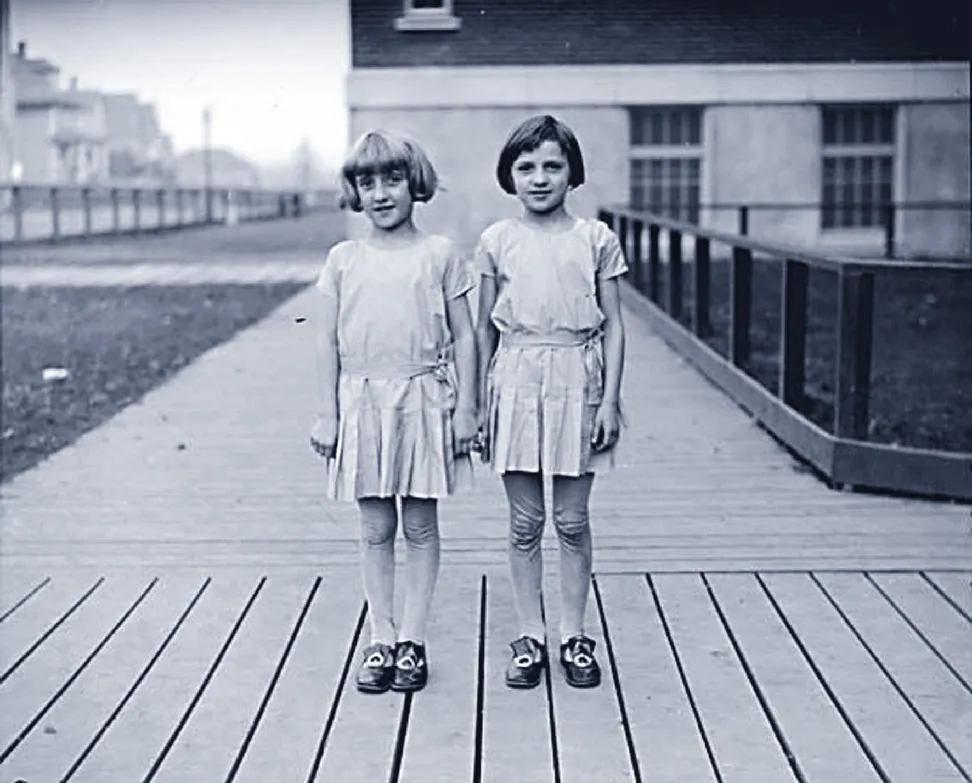First Children Are Smarter—but Why?
2014-12-20念念赵阳
∷念念 选 赵阳 注
“Those born earlier perform better in school”—and according to a new study, it’s because of the parents.
Moms and dads simply go easy on their later-born kids, according to data analyzed by economists V. Joseph Hotz and Juan Pantano, and as a result, first-born children tend to receive both the best parenting1. parenting: 父母对子女的养育。and the best grades.
The first thing to say about a study like this is that lots of readers will re flexively2. re flexively: 条件反射地。disagree with the assumption. With kids, as with anything,shouldn’t practice make perfect?3. 难道养孩子不是和其他事情一样遵循“熟能生巧”的道理吗?Don’t parents get richer into their 30s and 40s, providing for better child-rearing4. child-rearing: 育儿的。resources? I’m a first child, myself,well-known within the family for being unorganized, forgetful, periodically disheveled, and persistently caught day-dreaming in the middle of conversations.5. 我就是家里的第一胎,也是最让我爸妈头疼的那个:我不愿受束缚、健忘、偶尔很邋遢,和别人说话的时候还爱走神儿;disheveled: 不整洁的,邋遢的For this reason, I’ve put stock in what you might call the First Pancake Theory of Parenting. In short: First pancakes tend to come out a little funny, and, well, so did I. And so do many first-borns.
But international surveys of birth orders and behavior (which might have offered me an empirical6. empirical: 经验主义的。excuse to behave this way) aren’t doing me any favors. First borns around the world, it turns out, have higher IQs, perform better in school, and are considered more accomplished by their parents. Looking at parent evaluations of children from the National Longitudinal Survey of Youth, the researchers found that mothers are much more likely to see their first children as high-achievers. They regard their subsequent7. subsequent: 随后的,后来的。children as considerably more average in their class.

好多人都说父母的第一胎更聪明、更有成就。可原因究竟是什么?是因为他们继承了父母最好的基因?抑或是他们得到了父母最好的照顾?读读下面这篇文章吧,你会找到满意的答案!
Let’s brie fly count off and nickname some of the leading older-kids-aresmarter theories reviewed by the economists, which push back against the principle of first pancakes.8. 让我们简单列出并命名这些经济学家们总结出的、主要的“第一胎优势论”,这些论点驳斥了前文提到的“第一胎劣势论”。push back against:反驳,驳斥。
1) The Divided-Attention Theory: Earlier-born siblings enjoy more time,care and attention than later-born siblings because attention is divided between fewer kids.9. Divided-Attention Theory:分配性注意理论; sibling:兄弟姐妹。
2) The Bad-Genes Theory: The strong evidence of higher IQs among first children leads some to believe that later kids are receiving diminished“genetic endowment10. genetic endowment: 遗传天资,禀赋。.”
3) The I’ve-Had-It-With-Kids! Theory: Some parents decide to stop having more children after a dif ficult experience raising one. In that case,the poorer performance of later children isn’t genetic, so much as selection bias: Some parents keep having children until they have one that’s so problematic11. problematic: 成问题的。it makes them say “enough.”
4) The No-One-to-Teach Theory: This is the idea that older siblings bene fit from the ability to teach their younger brothers and sisters. Building these teaching skills helps them build learning skills that makes them better in school.

5) The Divorce Theory: Family crises like divorce are far more likely to happen after the first child is born ( first marriage, then divorce, then a first child is not a common sequence) and they can disrupt12. disrupt: 破坏,使中断。later kids’ upbringing.
6) The Lazy-Parent Theory: The general idea here is that first-time parents, scared of messing up their new human, commit to memory the first chapter ofBattle Hymn of the Tiger Mother, but by the second or third child, they’ve majorly chilled out.13. Battle Hymn of the Tiger Mother:《虎妈战歌》,是美籍华人、耶鲁大学法学院教授蔡美儿出版的关于她教育自己女儿方式的书;chill out: 冷静下来,缓和情绪。
Parents are more likely to make strict rules (about,e.g., TV-watching) and be intimately involved in the academic performance of their first children,according to survey data. They’re also more likely to punish their first child’s bad grades. Hotz and Pantano say moms and dads start tough and go soft to establish a “reputation” within their household for being strict—a reputation they hope will trickle down to the younger siblings who will be too respectful to misbehave later on.14. 霍茨和潘塔诺认为父母们会对第一胎格外严厉以在家庭中树立起威望,第一胎会把自己对父母的敬畏传递给弟弟妹妹们,由此弟弟妹妹们便也不敢造次了。
The theory is interesting but not entirely persuasive. First it seems nearly-impossible to test. The survey data is much better at showing that parents chill out as they have more kids than at showing that parents chill out because they’re explicitly15. explicitly: 明显地,清楚地。establishing a reputation for strictness. Nothing in the paper seems to argue against the simpler idea that parents seem to go soft on later kids because raising four children with the same level of attention you’d afford a single child is utterly exhausting16. exhausting: 让人筋疲力尽的。. What’s more,if later-born children turn out to be less academically capable than their older siblings, it suggests that the economists’ reputation theory is failing in families across the country.

